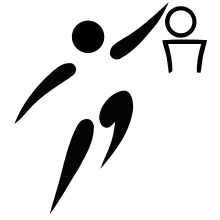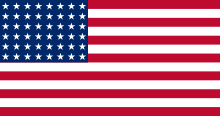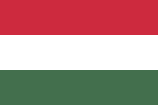Estonia at the 1936 Summer Olympics
| Estonia at the 1936 Summer Olympics | |||||||||
|---|---|---|---|---|---|---|---|---|---|
 | |||||||||
| IOC code | EST | ||||||||
| NOC | Estonian Olympic Committee | ||||||||
| Website |
www | ||||||||
| in Berlin | |||||||||
| Competitors | 37 (men) in 8 sports | ||||||||
| Flag bearer | Erich Altosaar | ||||||||
| Medals Ranked 13th |
| ||||||||
| Summer Olympics appearances (overview) | |||||||||
| Other related appearances | |||||||||
|
| |||||||||
Estonia competed at the 1936 Summer Olympics in Berlin, Germany. It was the last time that Estonia competed at the Summer Games as an independent nation until the 1992 Summer Olympics. After the nation was occupied by the Soviet Union in 1940, a number of Estonian athletes competed as part of the USSR delegations at the Summer Olympic games from 1952 to 1988.
Medals
| Medal | Name | Sport | Event |
|---|---|---|---|
| | Palusalu, KristjanKristjan Palusalu | Wrestling | Men's Greco-Roman Heavyweight |
| | Palusalu, KristjanKristjan Palusalu | Wrestling | Men's Freestyle Heavyweight |
| | Stepulov, NikolaiNikolai Stepulov | Boxing | Men's Lightweight |
| | Neo, AugustAugust Neo | Wrestling | Men's Freestyle Light Heavyweight |
| | Luhaäär, ArnoldArnold Luhaäär | Weightlifting | Men's Heavyweight |
| | Väli, VoldemarVoldemar Väli | Wrestling | Men's Greco-Roman Lightweight |
| | Neo, AugustAugust Neo | Wrestling | Men's Greco-Roman Light Heavyweight |
The 1936 Estonian Olympic Team
Estonia sent 37 athletes and 13 representatives to those games.
- Representatives
Estonian National Olympic Committee representative was Konrad Mauritz. Estonian team representatives were delegation heads: NOC secretary Ado Anderkopp and Harald Tammer, attaché Councillor at the Legation Georg Meri, Officer of the Honorary Service Lieutenant Refior, manager Johannes Villemson, Aleksander Paluvere in athletics, Nikolai Kursman in wrestling, Eduard Kõppo in weightlifting, Peeter Matsov in boxing, Gustav Laanekõrb in sailing, Richard Mast in swimming, Edgar Kolmpere in basketball, Aleksander Praks – massage therapist, Valentin Purre – team chef, dr. Arnold Roomere-Rõmmer – medical doctor. There were also 30 Estonian youths, led by Johan Meimer, taking part of The International Youth Encampment and 28 students took part of The International Physical Education Students’ Encampment in Berlin.
- Team coaches
Aleksander Kolmpere – athletics, Nikolai Kursman – wrestling, Herbert Niiler – basketball.
- Judges
Aleksei Selenoi in basketball, Peeter Matsov in boxing; Johannes Kauba, Karl Kullisaar and Johannes Villemson in wrestling
- Other delegations
Estonians in other delegations were Kalev Kotkas (from 1936 fi: Kalevi Kotkas) for ![]() Finland (FIN) in athletics – high jump, Leonard Einsaar for
Finland (FIN) in athletics – high jump, Leonard Einsaar for ![]() Australia (AUS) in rowing – Men's eight, Valentin Klõšeiko (pl: Walenty Kłyszejko) coach for Polish basketball team.
Australia (AUS) in rowing – Men's eight, Valentin Klõšeiko (pl: Walenty Kłyszejko) coach for Polish basketball team.
Aleksander Antson (Eesti Spordipressi Klubi and Uusi Suomi), Oskar Lõvi alias Toomas Kivi (Postimees, Päevaleht and (Eesti Raadio), Aadu Adari-Adorf (Uudisleht), Vladimir Raudsepp (Uus Eesti), Ilmar Peterson (Päevaleht), Aksel Vaik (Vaba Maa), Harald Nõmmik (Rahvaleht). Newspaper columnists Artur Reisner, Evald Äärma, Johannes Villemson, Ernst Idla etc. The International Youth Encampment coverage by R. Uustal and The International Physical Education Students’ Encampment coverage by Arved Ojari.
- Olympic Identity Cards
The Organizing Committee issued 126 Olympic Identity Cards for Estonian participants.
Results by event
 Athletics
Athletics
- Ruudi Toomsalu – First Round Heat 3: lost to Wijnand van Beveren
 Netherlands (NED) and Eric Grimbeek
Netherlands (NED) and Eric Grimbeek .svg.png) South Africa (RSA); 11,0 3rd place (→ did not advance )
South Africa (RSA); 11,0 3rd place (→ did not advance )
- Reginald Uba – First Round Heat 3: 4.26,2 8th place (→ did not advance )
- Ruudi Toomsalu – Elimination Trials: (Jumps: ~6.75m; X; ~7.00m ) Best: ←7.15 (→ did not advance to Semi-Finals )
- Aksel Kuuse – Semi-Finals: 1.90m (→ did not advance to Final, 10.-11. place )
- Kalevi Kotkas – compited for
 Finland (FIN) Final: 2.00m (→ 4. place )
Finland (FIN) Final: 2.00m (→ 4. place )
- Eevald Äärma – Elimination Trials: 3.70m (→ did not advance to Semi-Finals, 26.-28. place )
- Arnold Viiding – Semi-Finals: (Puts: 14.72m; 14.31m; 15.23m ) Best: 15.23m (→ did not advance to Final, 8. place )
- Gustav Sule – Semi-Finals: (Throws: 63.26m; 59.90m; 61.00m ) Best: 63.26m (→ did not advance to Final, 11. place )
- Koit Annamaa – Semi-Finals: (Throws: 48.77m; 49.54m; 50.46m ) Best: 50.46m (→ did not advance to Final, 8. place )
 Basketball
Basketball
- Estonian Team: ( Artur Amon, Aleksander Illi, Robert Keres, Vladimir Kärk, Evald Mahl, Heino Veskila, Erich Altosaar, Aleksander Margevitš-Margiste, Bernhard Voldemar Nooni, Leonid Saar, Georg Vinogradov, Coach: Herbert Niiler )
- First round: defeated
 France (FRA) 34-29
France (FRA) 34-29 - Second round: lost to
 United States (USA) 28–52
United States (USA) 28–52 - Second consolation round: BYE
- Third round: lost to
.svg.png) Philippines (PHI) 22–39 (→ did not advance, 9.-14. place )
Philippines (PHI) 22–39 (→ did not advance, 9.-14. place )
- First round: defeated
 Boxing
Boxing
Men's featherweight (−57,2 kg).
- Evald Seeberg
- First round – defeated Nicolae Berechet
 Romania (ROU) with points.
Romania (ROU) with points. - Second round – lost to Theodore Kara
 United States (USA) with points. (→ did not advance )
United States (USA) with points. (→ did not advance )
- First round – defeated Nicolae Berechet
Men's lightweight (−61,2 kg).
- Nikolai Stepulov
- First round – defeated André Wollscheidt
 Luxembourg (LUX) with points.
Luxembourg (LUX) with points. - Second round – defeated Hidekichi Nagamatsu
.svg.png) Japan (JPN) with points.
Japan (JPN) with points. - Third round – defeated Carlos Lillo
 Chile (CHI) with points.
Chile (CHI) with points. - Fourth round – defeated Erik Ågren
 Sweden (SWE) with points.
Sweden (SWE) with points. - Final round – lost to Imre Harangi
 Hungary (HUN) with points. (→
Hungary (HUN) with points. (→  Silver Medal)
Silver Medal)
- First round – defeated André Wollscheidt
 Rowing
Rowing
- Elmar Korko
- First round: 1st Heat – lost to Roger Verey
.svg.png) Poland (POL) and Santiago de Palma
Poland (POL) and Santiago de Palma .svg.png) Brazil (BRA); 7.40,4 (1000m in 3.42,9 ) 3rd place
Brazil (BRA); 7.40,4 (1000m in 3.42,9 ) 3rd place - Repechage: 1st Heat – lost to Josef Hasenöhrl
 Austria (AUT) and Carl Christiansen
Austria (AUT) and Carl Christiansen  Norway (NOR); 7.44,1 (1000m in 3.39,5 ) 3rd place (→ did not advance to Semi-Final, 13.-16. place )
Norway (NOR); 7.44,1 (1000m in 3.39,5 ) 3rd place (→ did not advance to Semi-Final, 13.-16. place )
- First round: 1st Heat – lost to Roger Verey
- Leonard Einsaar – compited for
 Australia (AUS) First round Heat 2: 4th 6.21,9; Repechage Heat 1: 2nd 6.55,1 (→ did not advance to Final, 8.-11. place )
Australia (AUS) First round Heat 2: 4th 6.21,9; Repechage Heat 1: 2nd 6.55,1 (→ did not advance to Final, 8.-11. place )
 Sailing
Sailing
- Erik von Holst – Boat name: Brandenburg No. O/G 304 7 races: ( withdraw – 0pts; 6th – 20 pts ; 7th – 19 pts; 21st – 5 pts; 13th – 13 pts; 9th – 17 pts; 22nd – 4 pts ) Total points: 78 (→ 17.place )
- Harald Tammik – reserve, Boat name: Brandenburg No. O/G 304
 Swimming
Swimming
Men's 100 m freestyle
- Egon Roolaid – First Heats: 2nd Heat 1.01,5 4th place (→ did not advance to Semi-Finals, 20.-21. place )
Men's 100 m backstroke
- Boris Roolaid – First Heats: 4th Heat 1.21,1 4th place (→ did not advance to Semi-Finals, 29. place )
 Weightlifting
Weightlifting
Men's featherweight (−60,0 kg)
- Erm Lund – 270,0 kg ( Press: 72,5; Snatch: 85,0; Jerk: 112,5 ) (→ 13. place )
Men's lightweight (−67,5 kg)
- Peeter Mürk – 285,0 kg ( Press: 75,0; Snatch: 95,0; Jerk: 115,0 ) (→ 11. place )
Men's light-heavyweight (−82,5 kg)
- Karl Oole – 320,0 kg ( Press: 87,5; Snatch: 100,0; Jerk: 132,5 ) (→ 14. place )
Men's heavyweight (+82,5 kg)
- Arnold Luhaäär – 400,0 kg ( Press: 115,0; Snatch: 120,0 ; Jerk: 165,0 Olympic record ). (→
 Bronze Medal)
Bronze Medal)
 Wrestling
Wrestling
Men's Greco-Roman bantamweight (−56,0 kg)
- Evald Sikk
- First round – lost to Dante Bertoli
.svg.png) Italy (ITA) by judges decision 0:3 ( 3:1 bad points ).
Italy (ITA) by judges decision 0:3 ( 3:1 bad points ). - Second round – defeated Buemberger
 Austria (AUT) by a throw in 12.30 min. ( 0:3 bad points ).
Austria (AUT) by a throw in 12.30 min. ( 0:3 bad points ). - Third round – defeated Ali Erfan
.svg.png) Egypt (EGY) by judges decision 3:0 ( 1:3 bad points ).
Egypt (EGY) by judges decision 3:0 ( 1:3 bad points ). - Fourth round – defeated Márton Lõrincz
 Hungary (HUN) by judges decision 3:0 ( 1:3 bad points ).(→ Eliminated with five and more bad points, 6. place )
Hungary (HUN) by judges decision 3:0 ( 1:3 bad points ).(→ Eliminated with five and more bad points, 6. place )
- First round – lost to Dante Bertoli
Men's Greco-Roman lightweight (−66,0 kg)
- Voldemar Väli
- First round – defeated Arild Dahl
 Norway (NOR) by a throw in 4.53 min. ( 0:3 bad points ).
Norway (NOR) by a throw in 4.53 min. ( 0:3 bad points ). - Second round – defeated Heinrich Nettesheim
.svg.png) Germany (GER) by judges decision 3:0 ( 1:3 bad points ).
Germany (GER) by judges decision 3:0 ( 1:3 bad points ). - Third round – defeated Saim Arikan
 Turkey (TUR) by judges decision 3:0 ( 1:3 bad points ).
Turkey (TUR) by judges decision 3:0 ( 1:3 bad points ). - Fourth round – defeated Zbigniew Szajewski
.svg.png) Poland (POL) by a throw in 15.21 min. ( 0:3 bad points ).
Poland (POL) by a throw in 15.21 min. ( 0:3 bad points ). - Fifth round – defeated Herbert Olofsson
 Sweden (SWE) by a throw in 13.14 min. ( 0:3 bad points ).
Sweden (SWE) by a throw in 13.14 min. ( 0:3 bad points ). - Sixth round – lost to Lauri Koskela
 Finland (FIN) by judges decision 1:2 ( 2:1 bad points ).
Finland (FIN) by judges decision 1:2 ( 2:1 bad points ). - Seventh round – lost to Jozef Herda
 Czechoslovakia (TCH) by judges decision 0:3 ( 3:1 bad points ). (→
Czechoslovakia (TCH) by judges decision 0:3 ( 3:1 bad points ). (→  Bronze Medal)
Bronze Medal)
- First round – defeated Arild Dahl
Men's Greco-Roman welterweight (−72,0 kg)
- Edgar Puusepp
- First round – lost to Fritz Schäfer
.svg.png) Germany (GER) by judges decision 0:3 ( 3:1 bad points ).
Germany (GER) by judges decision 0:3 ( 3:1 bad points ). - Second round – defeated Gyula Vincze
 Hungary (HUN) by a throw in 13.40 min. ( 0:3 bad points ).
Hungary (HUN) by a throw in 13.40 min. ( 0:3 bad points ). - Third round – defeated Jean de Feu
.svg.png) Belgium (BEL) by a throw in 6.58 min. ( 0:3 bad points ).
Belgium (BEL) by a throw in 6.58 min. ( 0:3 bad points ). - Fourth round – lost to Rudolf Svedberg
 Sweden (SWE) by judges decision 0:3 ( 3:1 bad points ). (→ Eliminated with five and more bad points, 4. place )
Sweden (SWE) by judges decision 0:3 ( 3:1 bad points ). (→ Eliminated with five and more bad points, 4. place )
- First round – lost to Fritz Schäfer
Men's Greco-Roman middleweight (−79,0 kg)
- Voldemar Mägi
- First round – lost to Väinö Kokkinen
 Finland (FIN) by judges decision 1:2 ( 2:1 bad points ).
Finland (FIN) by judges decision 1:2 ( 2:1 bad points ). - Second round – lost to Ercole Gallegati
.svg.png) Italy (ITA) by judges decision 0:3 ( 3:1 bad points ). (→ Eliminated with five and more bad points, 11.place )
Italy (ITA) by judges decision 0:3 ( 3:1 bad points ). (→ Eliminated with five and more bad points, 11.place )
- First round – lost to Väinö Kokkinen
Men's Greco-Roman light-heavyweight (−87,0 kg)
- August Neo
- First round – advanced without competing
- Second round – lost to Axel Cadier
 Sweden (SWE) by judges decision 0:3 ( 3:1 bad points ).
Sweden (SWE) by judges decision 0:3 ( 3:1 bad points ). - Third round – defeated Franz Foidl
 Austria (AUT) by a throw in 4.59 min. ( 0:3 bad points ).
Austria (AUT) by a throw in 4.59 min. ( 0:3 bad points ). - Fourth round – defeated Umberto Silvestri
.svg.png) Italy (ITA) by a throw in 12.19 min. ( 0:3 bad points ).
Italy (ITA) by a throw in 12.19 min. ( 0:3 bad points ). - Fifth round – lost to Edvīns Bietags
 Latvia (LAT) by judges decision 1:2 ( 2:1 bad points ). (→
Latvia (LAT) by judges decision 1:2 ( 2:1 bad points ). (→  Bronze Medal)
Bronze Medal)
Men's Greco-Roman heavyweight (+87,0 kg)
- Kristjan Palusalu
- First round – defeated Eduard Schöll
 Austria (AUT) by a throw in 8.41 min. ( 0:3 bad points ).
Austria (AUT) by a throw in 8.41 min. ( 0:3 bad points ). - Second round – defeated Zoltán Kondorossy
 Romania (ROU) by a throw in 10.36 min. ( 0:3 bad points ).
Romania (ROU) by a throw in 10.36 min. ( 0:3 bad points ). - Third round – defeated John Nyman
 Sweden (SWE) by judges decision 3:0 ( 1:3 bad points ).
Sweden (SWE) by judges decision 3:0 ( 1:3 bad points ). - Fourth round – defeated Mehmet Çoban
 Turkey (TUR) by judges decision 3:0 ( 1:3 bad points ).
Turkey (TUR) by judges decision 3:0 ( 1:3 bad points ). - Fifth round – defeated Kurt Hornfischer
.svg.png) Germany (GER) by judges decision 3:0 ( 1:3 bad points ). (→
Germany (GER) by judges decision 3:0 ( 1:3 bad points ). (→  Gold Medal)
Gold Medal)
- First round – defeated Eduard Schöll
Men's freestyle lightweight (−66,0 kg)
- Adalbert Toots
- First round – advanced without competing
- Second round – lost to Eiichi Kazama
.svg.png) Japan (JPN) by judges decision 0:3 ( 3:1 bad points ).
Japan (JPN) by judges decision 0:3 ( 3:1 bad points ). - Third round – defeated Howard Thomas
.svg.png) Canada (CAN) by judges decision 3:0 ( 1:3 bad points ).
Canada (CAN) by judges decision 3:0 ( 1:3 bad points ). - Fourth round – lost to Charles Delporte
 France (FRA) withdrew owing to injury after 4 min. ( 3:0 bad points ). (→ Eliminated with five and more bad points, 8. place )
France (FRA) withdrew owing to injury after 4 min. ( 3:0 bad points ). (→ Eliminated with five and more bad points, 8. place )
Men's freestyle welterweight (−72,0 kg)
- August Kukk
- First round – lost to Willy Angst
 Switzerland (SUI) by a throw in 5.40 min. ( 3:0 bad points ).
Switzerland (SUI) by a throw in 5.40 min. ( 3:0 bad points ). - Second round – lost to Kálmán Sóvári
 Hungary (HUN) by judges decision 1:2 ( 2:1 bad points ). (→ Eliminated with five and more bad points, 13. place )
Hungary (HUN) by judges decision 1:2 ( 2:1 bad points ). (→ Eliminated with five and more bad points, 13. place )
- First round – lost to Willy Angst
Men's freestyle light-heavyweight (−87,0 kg)
- August Neo
- First round – lost to Knut Fridell
 Sweden (SWE) by judges decision 0:3 ( 3:1 bad points ).
Sweden (SWE) by judges decision 0:3 ( 3:1 bad points ). - Second round – defeated Ede Virág-Ébner
 Hungary (HUN) by a throw in 9.22 min. ( 0:3 bad points ).
Hungary (HUN) by a throw in 9.22 min. ( 0:3 bad points ). - Third round – defeated Ray Clemons
 United States (USA) by a throw in 8.09 min. ( 0:3 bad points ).
United States (USA) by a throw in 8.09 min. ( 0:3 bad points ). - Fourth round – defeated Paul Dätwyler
 Switzerland (SUI) by judges decision 3:0 ( 1:3 bad points ).
Switzerland (SUI) by judges decision 3:0 ( 1:3 bad points ). - Fifth round – defeated Erich Siebert
.svg.png) Germany (GER) by judges decision 3:´0 ( 1:3 bad points ). (→
Germany (GER) by judges decision 3:´0 ( 1:3 bad points ). (→  Silver Medal)
Silver Medal)
- First round – lost to Knut Fridell
Men's freestyle heavyweight (+87,0 kg)
- Kristjan Palusalu
- First round – defeated Josef Klapuch
 Czechoslovakia (TCH) by a throw in 10.50 min. ( 0:3 bad points ).
Czechoslovakia (TCH) by a throw in 10.50 min. ( 0:3 bad points ). - Second round – defeated Robert Herland
 France (FRA) by a throw in 6.45 min. ( 0:3 bad points ).
France (FRA) by a throw in 6.45 min. ( 0:3 bad points ). - Third round – defeated Mehmet Çoban
 Turkey (TUR) by judges decision 3:0 ( 1:3 bad points ).
Turkey (TUR) by judges decision 3:0 ( 1:3 bad points ). - Fourth round – defeated Werner Bürki
 Switzerland (SUI) by a throw in 6.15 min. ( 0:3 bad points ).
Switzerland (SUI) by a throw in 6.15 min. ( 0:3 bad points ). - Fifth round – defeated Hjalmar Nyström
 Finland (FIN) by judges decision 3:0 ( 1:3 bad points ). (→
Finland (FIN) by judges decision 3:0 ( 1:3 bad points ). (→  Gold Medal)
Gold Medal)
- First round – defeated Josef Klapuch
References
- Official Olympic Reports
- International Olympic Committee results database
- Estonian Olympic Committee – about the Berlin 1936 Olympics (Estonian)
- Antson, Aleksander (facsimile:1992) [1937]. Berliini olümpiamängud 1936 (en: Berlin Olympic Games 1936) (in Estonian). Tartu: Noor-Eesti Kirjastus (facsimile: Olympia). ISBN 5-450-02427-4. Check date values in:
|date=(help) - Kuningas, Tiit; Tiit Lääne (2005). Olümpiamängude ajalugu II, suvemängud 1920–1944 (en: History of the Olympic Games II Summer Games 1920–1944) (in Estonian). Tallinn: Maalehe Raamat. ISBN 9985-64-255-4.